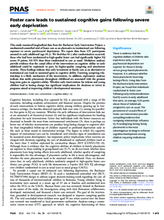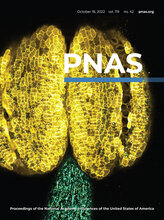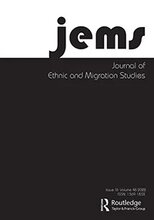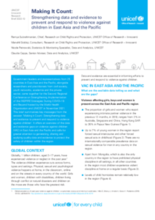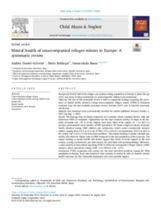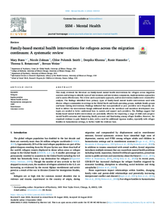Displaying 941 - 950 of 10391
This paper concentrates on the discussion of some contextual issues along with the challenges that are closely associated with social work practice at Macro, Mezzo and Micro levels of intervention. Here in the paper, theoretical approaches and techniques that are significantly applicable in social work practice have been presented along with some challenge-related contexts in social work practice in Bangladesh.
The Task Force on Foster Care of the Transforming Children's Care Global Collaborative Platform held the fifth webinar in the spotlight series on Foster Care Practice on 15 September 2022. The webinar explored participation in foster care with particular focus on individual decision making for children and young people. We heard from people with lived experience of foster care in different contexts, including Uganda, Ireland and Argentina.
This study examined longitudinal data from the Bucharest Early Intervention Project, a randomized controlled trial of foster care as an alternative to institutional care following exposure to severe psychosocial deprivation. The findings indicate that early investment in family care as an alternative to institutional care leads to sustained gains in cognitive ability.
This study, based in Romania, examined longitudinal data from the Bucharest Early Intervention Project, a randomized controlled trial of foster care as an alternative to institutional care following exposure to severe psychosocial deprivation.
This paper aims to analyse how State policies, on the book and in practice, shape family reunification. It focuses on child migration under constraint in France, by analysing the timing and factors of (non-)reunification among foreign immigrants, whose legal conditions for family reunification are much more restrictive than for those who obtained the French citizenship.
This brief provides an overview of the data and evidence gaps on violence against children in East Asia and the Pacific. It calls for greater attention to generating, sharing and applying quality data and evidence to protect the safety and rights of children within the region.
The Alliance for Child Protection in Humanitarian Action CPMS Working Group held an interactive webinar to support members in engaging and completing the recently distributed Self-Assessment Process for the Child Protection Minimum Standards
The aim of this systematic review is both to summarize findings regarding the prevalence of mental health disorders among unaccompanied refugee minors (URM) in European countries since the last available systematic review (October 2017), and to describe associated risk factors.
This global study reviewed the literature on family-based mental health interventions for refugees across migration contexts and settings to identify types of interventions and intervention components, implementation approaches and to assess effectiveness. The review used a systematic approach, and ten intervention studies were retained for analysis.
Sri Lanka government officials visited the state of Rajasthan in India to view family-based care models that will inform Sri Lanka’s child protection system as the country transitions into an innovative approach that supports children in family settings. CERI, in partnership with UNICEF Sri Lanka and UNICEF India, hosted the delegation’s visit to family-strengthening, foster care, and group foster care models implemented by Foster Care Society and the Department of Child Rights in Rajasthan.


